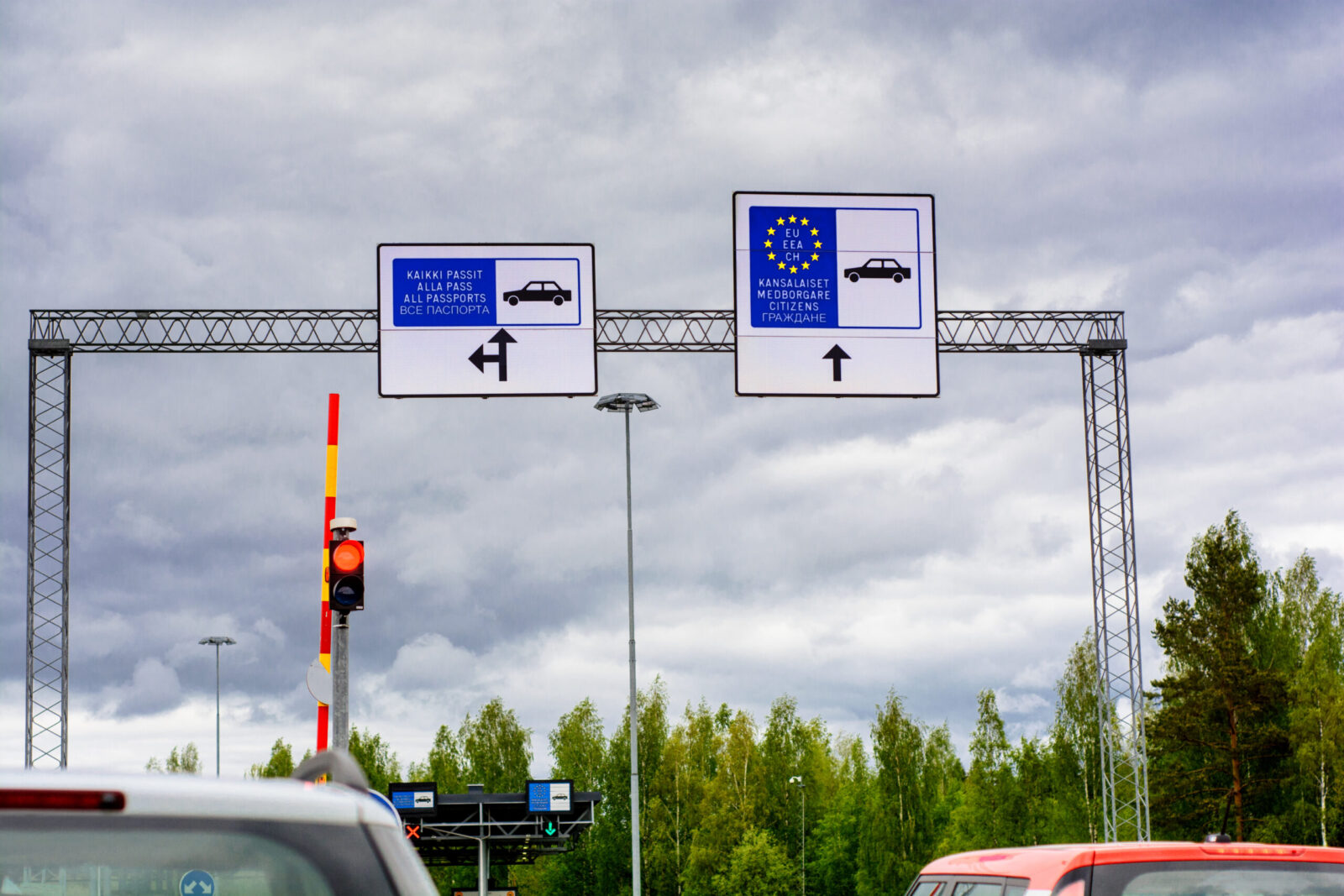Why banning Russians from Europe is the right thing to do
Volodymyr Zelenskyy’s call to prohibit Russians from entering the Schengen area has received increasing support among EU leaders. However, it has also caused some disagreement within EU member states. Some argue that ordinary Russians should not be punished for Vladimir Putin’s actions, while others say that attempting to introduce a ban might cause division within Europe. But is that entirely true? The facts say no.
August 31, 2022 -
Vladyslav Faraponov
-
Articles and Commentary

The EU border between Russia and Finland. Photo: Nau Nau / Shutterstock
In an interview with the Washington Post, Ukrainian President Volodymyr Zelenskyy argued that an entry ban on Russian citizens is just as important to stop the war as a complete embargo on the export of Russian fossil fuels, something which is yet to be implemented. This assertion has caused many discussions in Ukraine and in EU member states about whether it is an appropriate restriction. These discussions have brought a number of questions to the surface, however the answers to these questions all point to a visa ban being a proportional response to Russia’s aggression.
Firstly, a European ban on Russian tourism poses a fundamental question: whose war is it — Putin’s or Russia’s? Certainly, it is Putin who makes the final decisions in Russia, a fact that is obvious at a glance. The former KGB agent has constructed an authoritarian regime, accumulating power and eliminating his main competitors, both within his inner circle and among the opposition. Putin’s major opponents have been killed, imprisoned or exiled. His inner circle appears to support the war — it only provides public backing, but also displays a lack of action to dissuade Putin. Ukraine’s fierce resistance has prevented Russia from achieving any of its major objectives, and Russia’s invasion could well end in a comprehensive defeat, with Putin and his top officials facing a special tribunal. Putin’s inner circle must be aware of this, so their silence and inaction ultimately mean that they agree with the Russian leader, and support the war.
Secondly, Russian public opinion also appears to back the invasion. According to the independent Levada Center, one of the most trusted polling organisations in Russia, around 77 per cent of the Russian population supports the war. Poll respondents generally think that the “operation” is making progress, while the number of positive responses increased from April to May 2022. Some research has sought to categorise pro-war Russians into different groups, based on their reasons. Many in Ukraine see this as trying to explain the inexplicable. If this is not a Russian war, why do Russians continue to send their sons to fight and torture Ukrainians? Was it Putin who killed people in Bucha and Mariupol and other cities and villages? And these are Russians who could still travel to Europe.
Thirdly, an argument that has been actively promoted is that a visa ban will prevent many from seeking political asylum or fleeing Russia. However, more than six months have passed and those who were willing to leave have already had the opportunity to do so. There have been no significant anti-war protests except for some at the very beginning of the war, where around 6,000 people were detained. Those protests were against the decision to launch the full-scale invasion, while subsequent atrocities such as those in Bucha, the execution of war prisoners in temporarily occupied Olenivka and the castration of a Ukrainian soldier have not provoked protests in Russia. One can claim that Putin’s electorate does not travel to Europe much, but does Europe have to welcome those who ignore these atrocities?
Finally, the entry ban issue should not be seen as something that will divide the EU and its member states. Banning Russians from visiting a united and strong Europe will make Europe safer. Russian operatives have spent the last several years conducting terrorist attacks on European soil, including poisonings in the United Kingdom, assassinations in Germany and sabotage in the Czech Republic and Bulgaria. Further incidents could happen anywhere. The Russian invasion of Ukraine was planned well in advance. The same could be being planned with regards to Europe, so the EU must put its security first.
Ukraine realises that the EU may not agree on a unified approach towards a visa ban. But at least those member states that border Russia and Ukraine should stop Russians from entering their countries. At the time of writing this article, Lithuania, Poland, Finland, Denmark and Estonia had announced that they would support the entry ban. On August 24th, Zelenskyy stressed that if Russia is not stopped now, its killers will spread across the world and the threat goes far beyond Ukraine. Time will tell if other EU countries will get on board.
Vladyslav Faraponov is an analyst and journalist at the Kyiv-based Internews-Ukraine and UkraineWorld.

This article is published in the framework of the “Bohdan Osadchuk Media Platform for Journalists from Ukraine” co-financed by the Polish-American Freedom Foundation as part of the "Support Ukraine” Program implemented by the Education for Democracy Foundation and the Foundation for Polish-German Cooperation.
Texts published as part of this project are available free of charge under open access Creative Commons license. Republishing is allowed under the CC license, however requires attribution and crediting the author and source.
Please support New Eastern Europe's crowdfunding campaign. Donate by clicking on the button below.

































